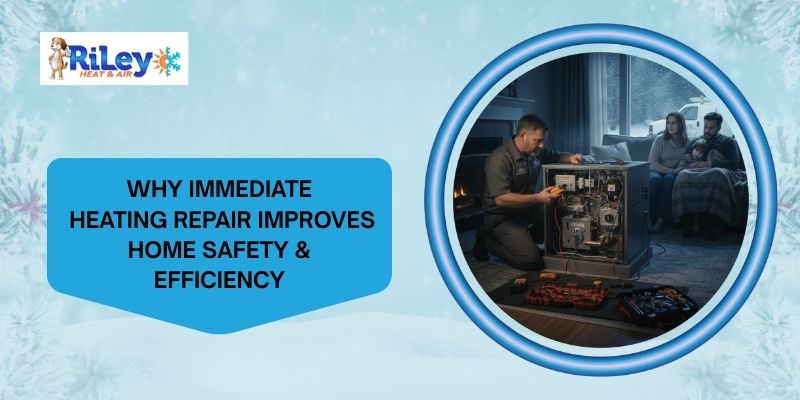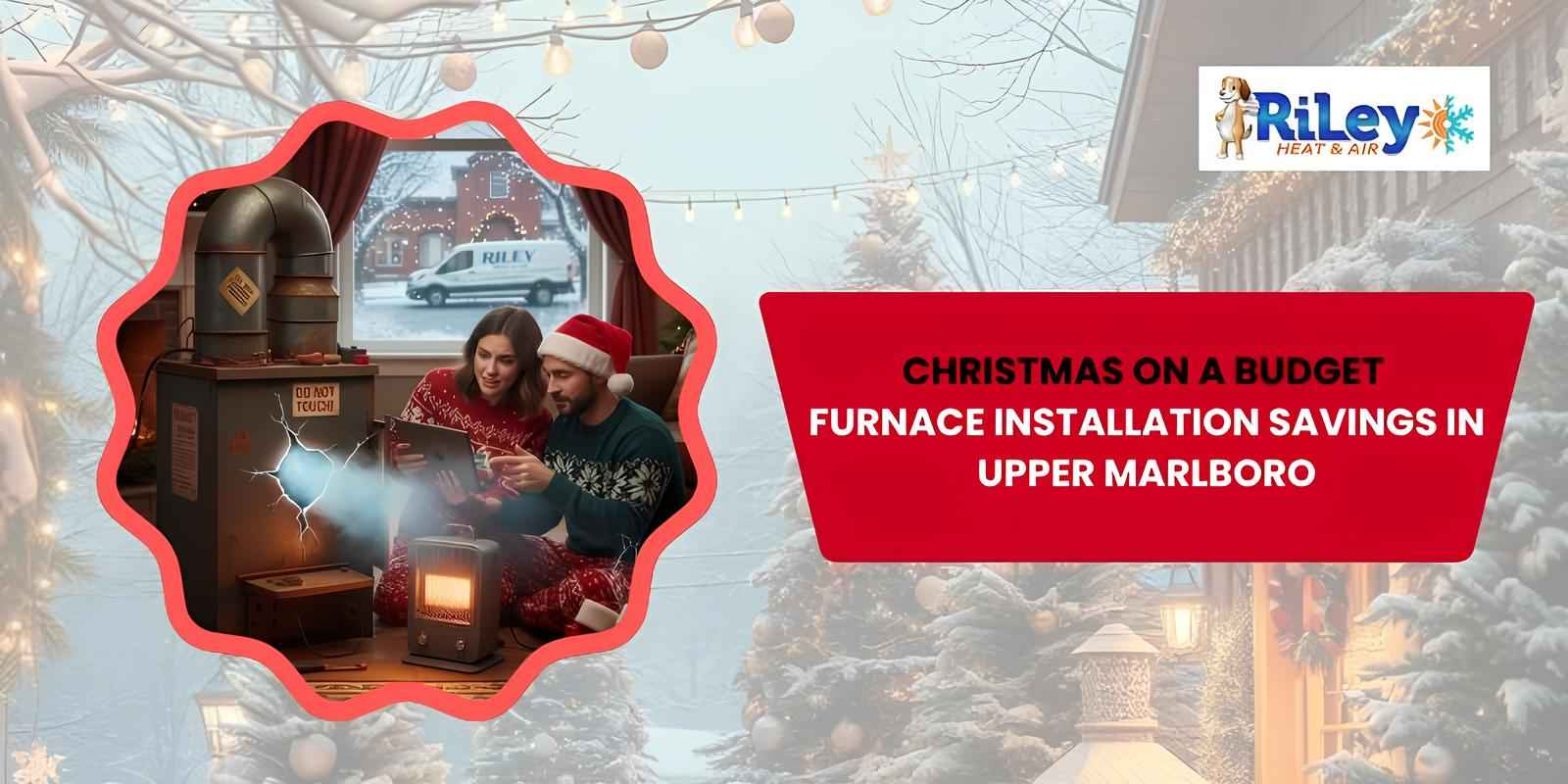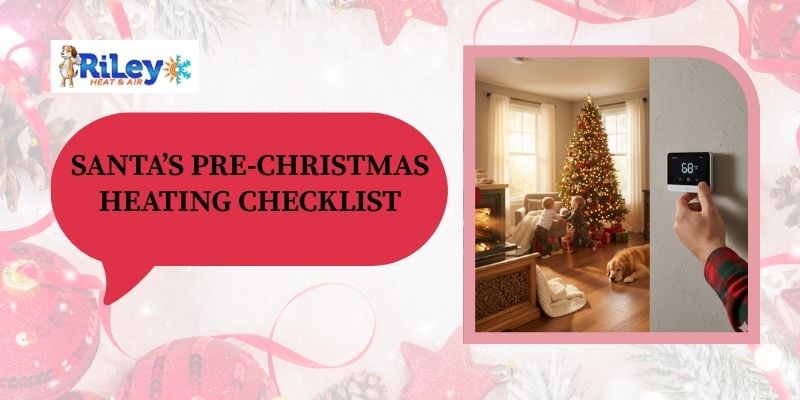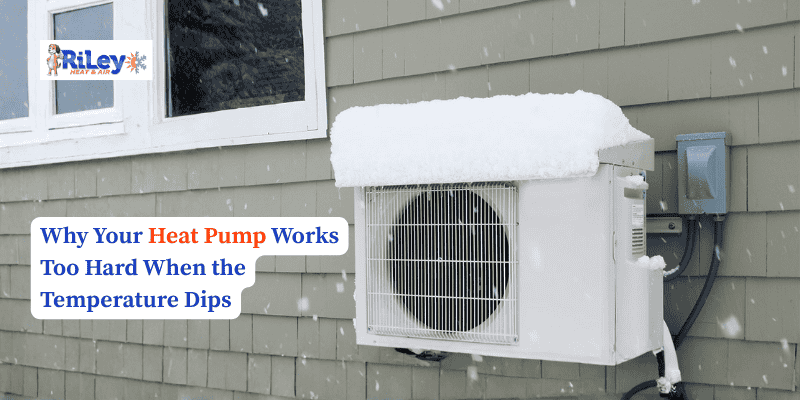
How to Spot Early Signs of AC Trouble in Washington, DC Homes
Air conditioner breakdowns during Washington, DC's summers can be uncomfortable and costly. The sudden loss of cooling, coupled with high humidity, creates an unpleasant indoor environment and often calls for emergency repairs. Fortunately, many air conditioner issues manifest as warning signs, allowing homeowners to address problems before they develop into costly breakdowns.
Early Signs of AC Trouble in Washington, DC Homes
The AC of your Washington, DC, home does not suddenly break down. There are often signs that indicate a potential problem. Here is how to spot early signs of AC trouble so that you can address them on time:
1. No Airflow
A non-functioning air conditioner can be a significant inconvenience. To troubleshoot this issue, verify that your thermostat is set to "cool" and that the desired temperature is a few degrees lower than the current room temperature.
If the problem persists, check your electrical panel for tripped circuit breakers and reset them accordingly. If your air conditioner is receiving power but still not operating, it is essential to schedule professional AC repair services immediately. Early intervention can prevent further damage to your system and help maintain optimal performance.
2. Weak Airflow
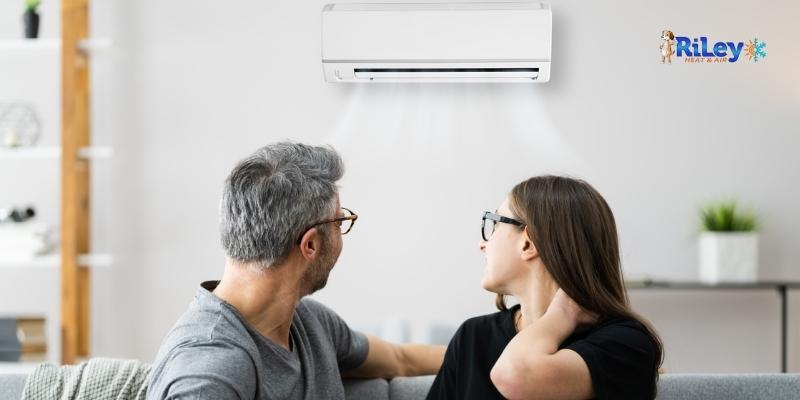
Have you noticed a gradual decline in your air conditioner's cooling power? A clogged air filter could be the cause. While replacing the filter is a simple fix, persistently weak airflow may indicate more severe problems with your ductwork. Leaky or collapsed ducts can significantly reduce your system's efficiency and comfort.
Professional air conditioning services are essential to detect and resolve these issues accurately. A qualified technician will thoroughly inspect your system, identify the cause of the problem, and perform the necessary repairs. Addressing these concerns promptly can restore optimal airflow, improve indoor air quality, and enhance your system's energy efficiency.
3. Pooling Water
A dry floor surrounding your AC system is crucial for maintaining optimal indoor air quality and energy efficiency. To prevent water damage, regularly inspect the condensate pan for overflows. If the pan is empty but water persists, examine the evaporator coil for ice buildup. This condition often indicates low refrigerant levels, causing moisture in the air to freeze on the coil.
You should also know that as the ice thaws, it drips onto the floor. Both condensate pan issues and evaporator coil problems require professional air conditioner repair. Timely intervention from a qualified technician ensures your system operates efficiently, prevents further damage, and preserves indoor air quality.
4. Warm Air Circulating
One of the most frequent reasons homeowners contact air conditioner repair services is a system's inability to cool the air before distribution adequately. If your AC unit blows warm air despite the thermostat being set to your desired temperature, it may indicate an underlying issue.
Potential causes include damaged air ducts, compressor problems, or insufficient refrigerant levels. It is essential to address warm air issues promptly. Not only does it compromise indoor comfort, but it also forces your AC system to work harder, leading to increased energy consumption and potential equipment failure. Regular AC maintenance can help prevent these problems and extend the lifespan of your system.
5. Odd Smell
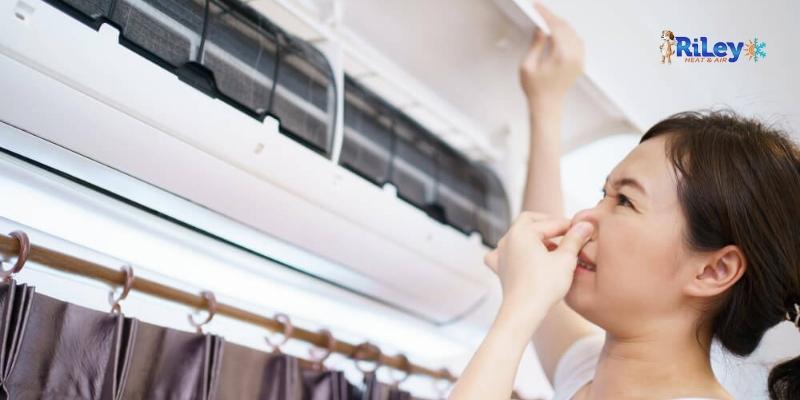
Your air conditioner should provide cool, clean comfort. Any unusual odor coming from your AC unit is a clear indication of a potential problem. A burning smell is particularly alarming as it may signal overheating electrical components, significantly increasing the fire risk. Also, a musty odor indicates harmful biological growth, such as mold or mildew.
Addressing these issues promptly can protect your family's health and well-being. Ignoring these warning signs can lead to decreased air quality, reduced energy efficiency, and potential safety hazards. Regular air conditioner maintenance, including filter replacement and professional inspections, can help prevent odor-related problems.
6. Loud Noises
Your air conditioner's indoor unit should operate silently. Any unusual sounds, such as squealing or scraping, often indicate misaligned or poorly lubricated components. Promptly addressing these noises is crucial to prevent further damage and costly repairs.
Do not neglect minor issues like this, as they can lead to significant problems. Regular AC maintenance and timely attention to abnormal sounds contribute to optimal performance.
7. Temperature Imbalances
Temperature inconsistencies throughout your living space may indicate an underlying issue with your AC system. To begin troubleshooting, ensure all return and supply air vents are unobstructed by furniture, rugs, or curtains.
If temperature differences persist, your air conditioner may operate more efficiently, or your air distribution system could be inadequately designed. In these cases, consulting with an AC technician is recommended. A professional AC technician can accurately diagnose the problem and implement solutions to restore optimal indoor comfort and energy efficiency.
8. Rising Electricity Bills
Energy costs fluctuate monthly, and rising electricity rates often contribute to increased bills over time. A sudden spike in energy consumption may indicate an inefficient or malfunctioning air conditioner. To prevent escalating energy expenses, scheduling timely air conditioner repair is essential.
A professional can accurately detect and rectify issues, restoring your system's efficiency and providing substantial long-term energy savings.
Conclusion
In Washington, DC, where summer temperatures soar and humidity levels climb, spotting early signs of air conditioner trouble is crucial to avoid costly breakdowns and uncomfortable living conditions. By being alert to indicators such as lack of airflow, weak cooling performance, pooling water, warm air circulation, unusual odors, loud noises, temperature imbalances, and rising electricity bills, homeowners can address problems before they escalate.
Tags :


